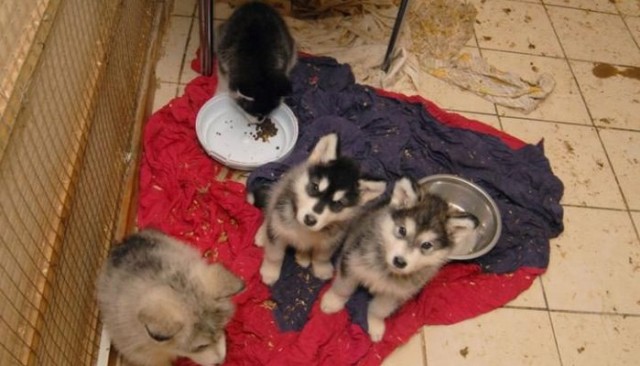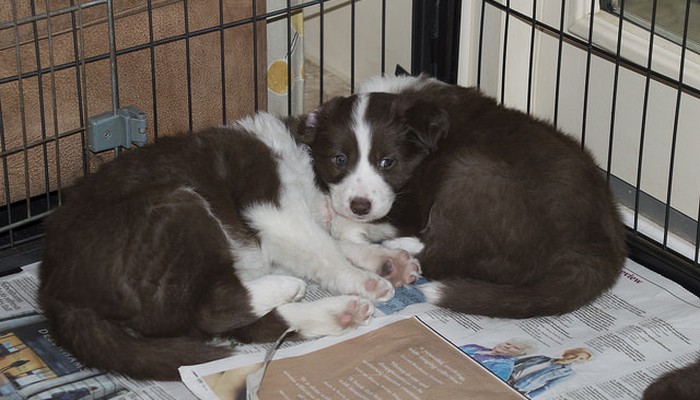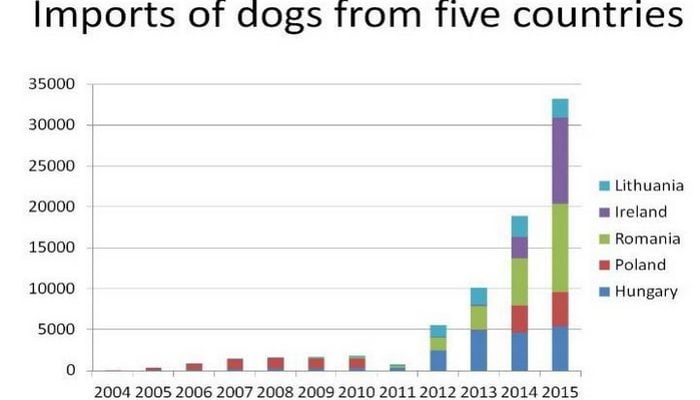
Late last month, a veterinarian and his assistant in Leeds, England were convicted of six offences against the Animal Welfare Act. Almost one year ago, the police raided Armley Vets and found 22 dogs and 8 cats in the basement and back room of the building. Some were in cages, but others were wandering the feces covered floor.
Sadly, four dogs and one of the cats needed to be euthanized after the raid. An investigator from the Royal Society for the Prevention of Cruelty to Animals (RSPCA) was working on the case and said that the animals were found living in a “pitch black dungeon.” The rooms were filthy, there was waste matter everywhere and the animals had no access to food or water.
RELATED: Dog Abuse: Let's Fix This, One Dog At a Time

The vet and his assistant are set to be sentenced sometime this month, and the Royal College of Veterinary surgeons will launch their own investigation as well. It is terrible when a member of the public is charged with this type of crime, but when a veterinarian who has sworn an oath to protect and practice animal welfare is convicted of this kind of offense it is absolutely inexcusable.
It makes me wonder what type of veterinary practice this person was running. How can you practice ethical care of animals in your day to day business, yet treat animals like this behind closed doors? However, I know that the veterinary practice is no different than any other profession – there are people who take their job seriously and there are those that take advantage of the position that they are in.
Unfortunately, in the UK puppy farming is a big business and people can make a lot of money in a short amount of time running these puppy mills. Many potential pet parents want a sweet new puppy, not a rescue dog. As long as there is a demand for puppies, there will be unscrupulous folks who will take advantage of the supply and demand concept.
In the United Kingdom there is an organization called the Department for Environment, Food and Rural Affairs (DEFRA). They are responsible for food production standars, protecting the environment, fisheries, agriculture and rural communities. The organization released a statement last month that revealed that imported puppies from Hungary, Lithuania, Romania, Poland and Ireland have risen by 75% in the last few years.
RELATED: How Dogs Help People: 5 Best Stories
These countries have all been identified as having large puppy farming operations in their borders as well. The RSPCA is collecting signatures on a petition and asking the public to help support their “Scrap the Puppy Trade” campaign. There are many other smaller organizations working to get government legislations passed to tackle puppy imports in the UK also.

Like any other form of business, if there is a need for the product, the business will continue to grow. In this case, there is always a need for puppies. Some pet parents are looking for a certain breed and others aren’t particular. Pet ownership has grown significantly in the last decade, and it still continues to rise.
This means that there is a growing need for every breed of puppy from purebred show dogs to mutts. The only way to stop puppy farms and puppy mills is to stop purchasing puppies. Many potential pet parents actually look at this the opposite way. They feel bad for the animals that are raised on these puppy farms and they want to help them by adopting them and giving them a good home.
While adopting one puppy will certainly give that particular dog a better life, it is also paying these puppy farmers to stay in business, thus allow many more puppies to be brought into this world who will not be so lucky. Yes it is heartbreaking to think of these poor pups stuck in these terrible situations, but the only way to break the cycle is to stop purchasing puppies and look to adoption instead.












